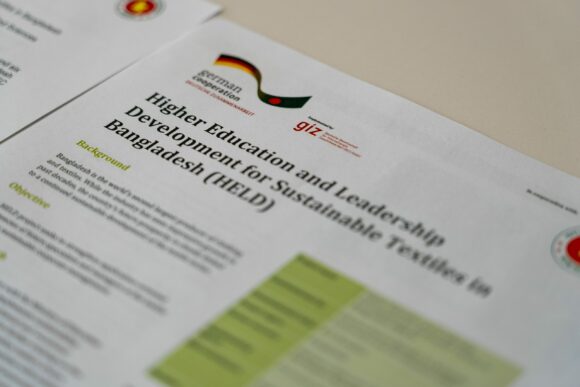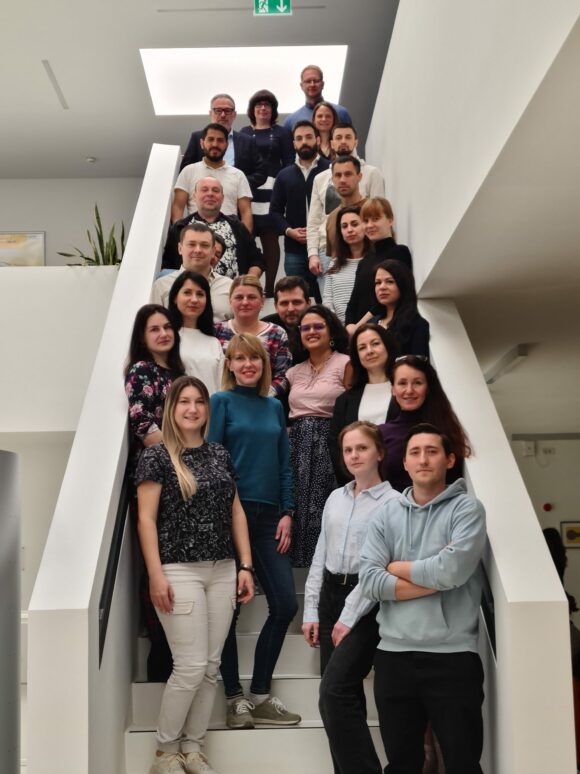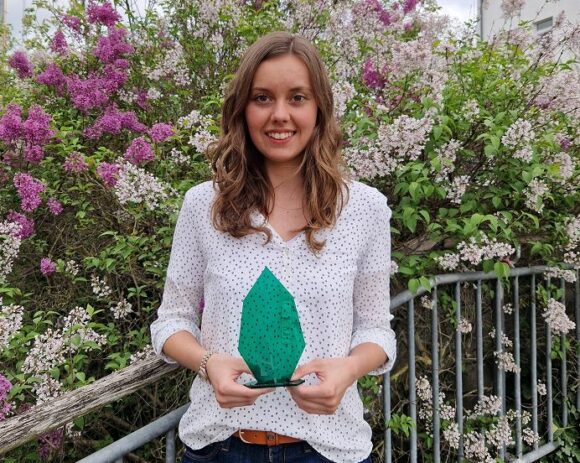New honey from the Hof campus – despite weak bees. With 32 kilos from four bee colonies, it was a comparatively small harvest, according to Prof. Jürgen Heym, head of the “Practical Beekeeping” course at Hof University. The bees’ loss of strength in winter is now noticeable, he said. Because on average, a bee colony produces 23 kilos. In summer, the university bees will become stronger again: with an assembled team, that is, specifically, four to six colonies.

Eight students enrolled in the “Practical Beekeeping” course in the 2023 summer semester. Once a week, they beekeep in the meadow. The new honey was presented in the presence of the bees – under the open sky on the flowering meadow – by Prof. Dr. Jürgen Heym to University President Prof. Dr. Dr. h.c.. Jürgen Lehmann.
The bee meadow is a refuge for plants and animals in the heart of the Hof University of Applied Sciences and thus sustainability in action.”
Prof. Dr. Dr. h.c. Jürgen Lehmann, university president
“We let the bees do it themselves”

The zander hive system used so far, i.e. the way the frames are placed in the hive, will be replaced by the so-called German standard. The wooden frames are then placed at 90 degrees, i.e. crosswise instead of lengthwise.

At Hof University of Applied Sciences, only wooden frames are used in the hives; Styrofoam is deliberately not used. According to Prof. Heym, the wooden frames are simply more hygienic and can be disinfected with a flame.
We open our hives only once a week and otherwise let the bees do it themselves. We treat parasites only as recommended, i.e., with the minimum of agents.
Prof. Dr. Jürgen Heym , Head of the “Practical Beekeeping” Course
This is better for the bees. Otherwise, there is a danger, for example, from the Varroa mite. Or foulbrood, a bacterial brood disease of honey bees, could occur. Hof University was lucky, however, and was spared.
Summer honey planned for July
The team plans to harvest new honey again at the end of July – then with four to six bee colonies. “This is possible, on the one hand, by dividing the previous colonies and, on the other hand, by using bees from a beekeeper friend,” explains Prof. Heym confidently.







